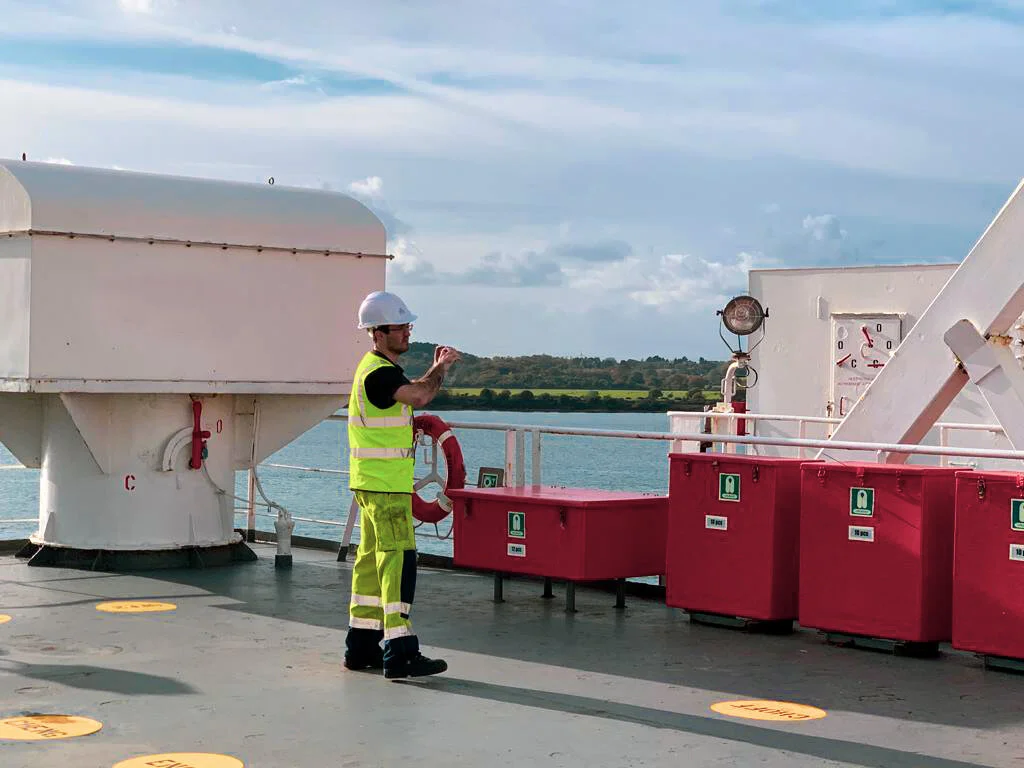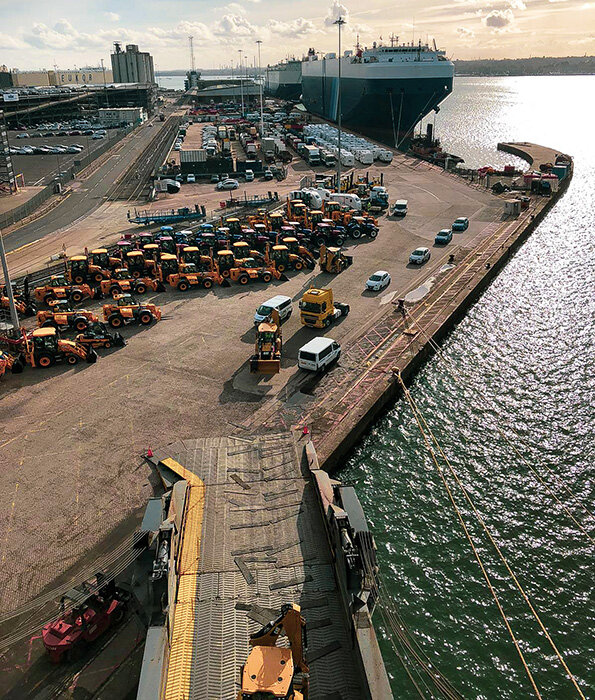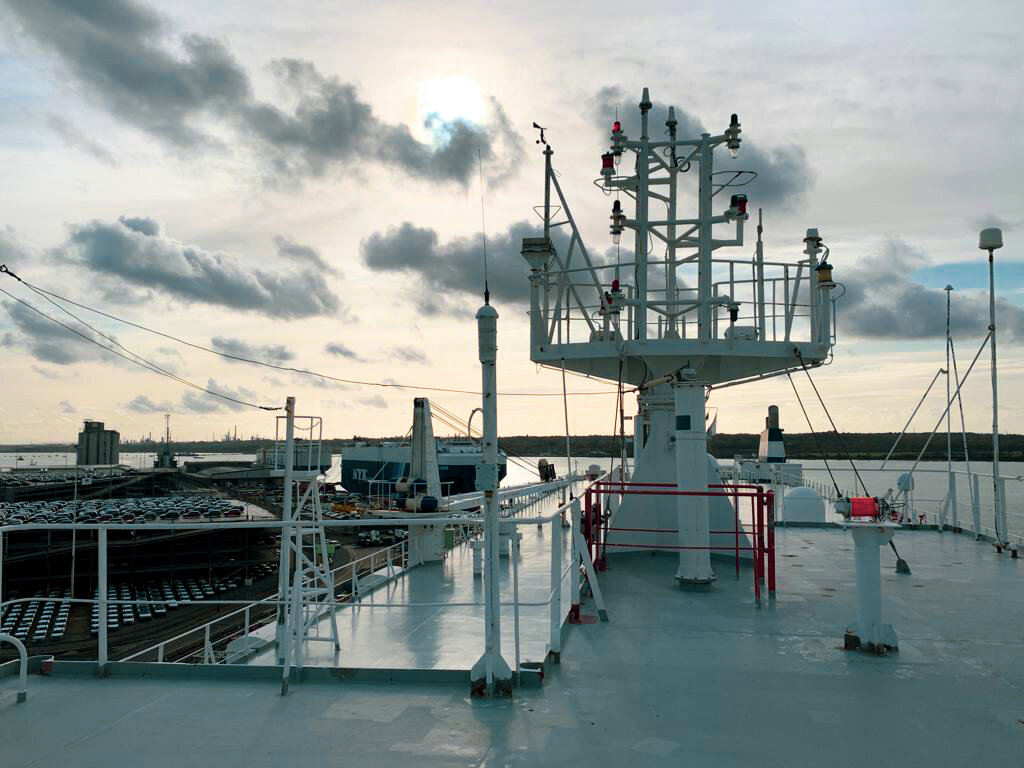My name is John Nicholson and I am part of Idwal’s internal technical team who is responsible for conducting surveys, technically reviewing external surveyor reports ensuring they are completed to the Idwal standard and also provide client advice and guidance amongst various other technical roles and tasks.
Before joining Idwal Marine in June 2018, I spent 11 years working for both Maersk Line and Maersk Supply Service reaching the rank of Chief Officer and Dynamic Positioning Officer (DPO). Working for one of the world’s largest, leading and most respected shipping companies provided me with extensive experience in all aspects of the maritime industry including vessel management, maintenance, anchor handling, towing and offshore operations.
My first task when inspecting a vessel is to contact both the agent and captain to make them aware of the inspection so that they can gather the required documentation before the survey which helps to ensure the survey goes smoothly. Background research into the vessel is also carried out looking at the vessels previous survey dates, PSC records and various other sources of industry data. As I am based at Idwal’s head office in Cardiff, our surveys tend to start with a drive to the vessel’s location with our internal technical team able to cover the majority of the UK.

Depending on the time of day and the visibility our surveys generally start by inspecting the vessel’s hull, primarily looking for indications of structural damage and the condition of coatings. After boarding the vessel and introducing myself to the crew and informing them of the purpose and aim of my visit, the documentation which was requested before the survey is reviewed looking for compliance with regulatory requirements and any areas of concern in documents such as lube oil analysis and engine performance reports. This then enables us to question the crew as to whether these issues have been rectified or not and to focus the survey on any areas of concern.

An image taken from John’s Ro-Ro inspection in the Port of Southampton.
After the document review, all areas and sections of the vessel are inspected such as the accommodation, bridge, ballast tanks, engine room and weather decks. The order in which this is done can vary depending on crew availability, vessel operations and even the weather. Inspecting areas such as the ballast tanks also provides us with an opportunity to assess the vessels safety standards which is essential in modern-day shipping and is highly important to our client’s. Usually, we are escorted around the vessel by the chief officer who provides us with access to the requested parts of the vessel, this also allows us to discuss the vessel and any issues that there may be on board.
Vessel inspections usually take 8-10 hours but can take several days to complete depending on the scope of work involved. There are also cases where a survey is urgently required during a short port stay, under these circumstances specific areas of the vessel our prioritised such as engine room, ballast tanks and cargo systems.
The Idwal inspection process includes a thorough vessel survey and technical review which ensures that our clients get an accurate and detailed report. We take the utmost pride in providing clients with detailed insights into the condition of their asset and strive to improve our surveys and processes using both customer and surveyor feedback.

Image taken from the deck of a ship in the Port of Southampton.
Also, attending the inspection was Idwal Product Manager Amanda Llewellyn who said:
“It was fantastic to be allowed to join John aboard a ship. I joined Idwal as a Product Manager in July, and although I have many years of experience in the tech industry, I am brand new to shipping. It was the first time I had been on to a merchant vessel and, it's fair to say, that I hadn't truly appreciated the sheer scale of the task undertaken by our surveyors every day. My goals for the day were to observe John and learn more about the inspection process. I was shadowing John to experience first-hand the tasks that surveyors perform and the context in which they perform them; an exercise that is key to building better products.”


Submit a comment